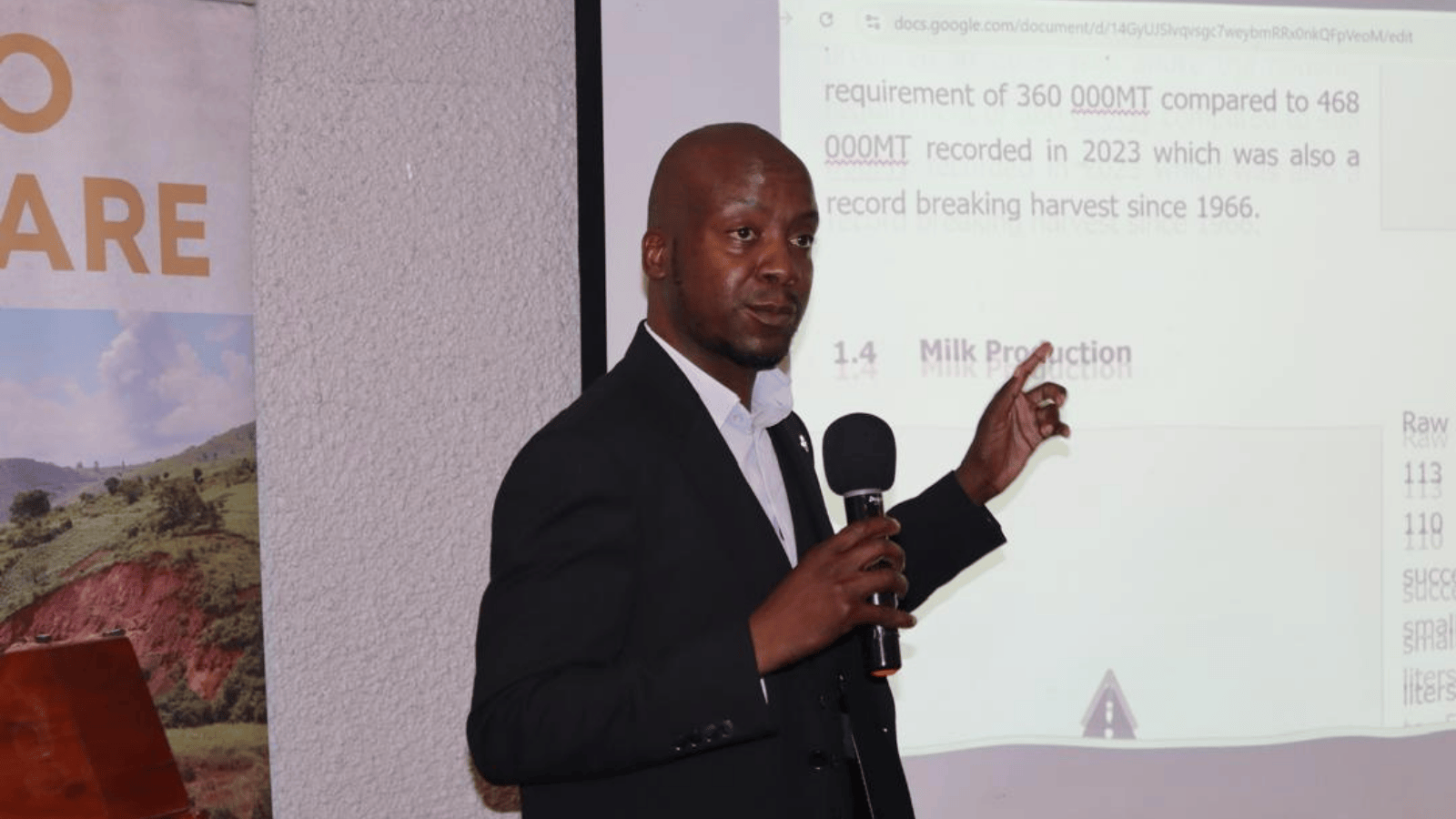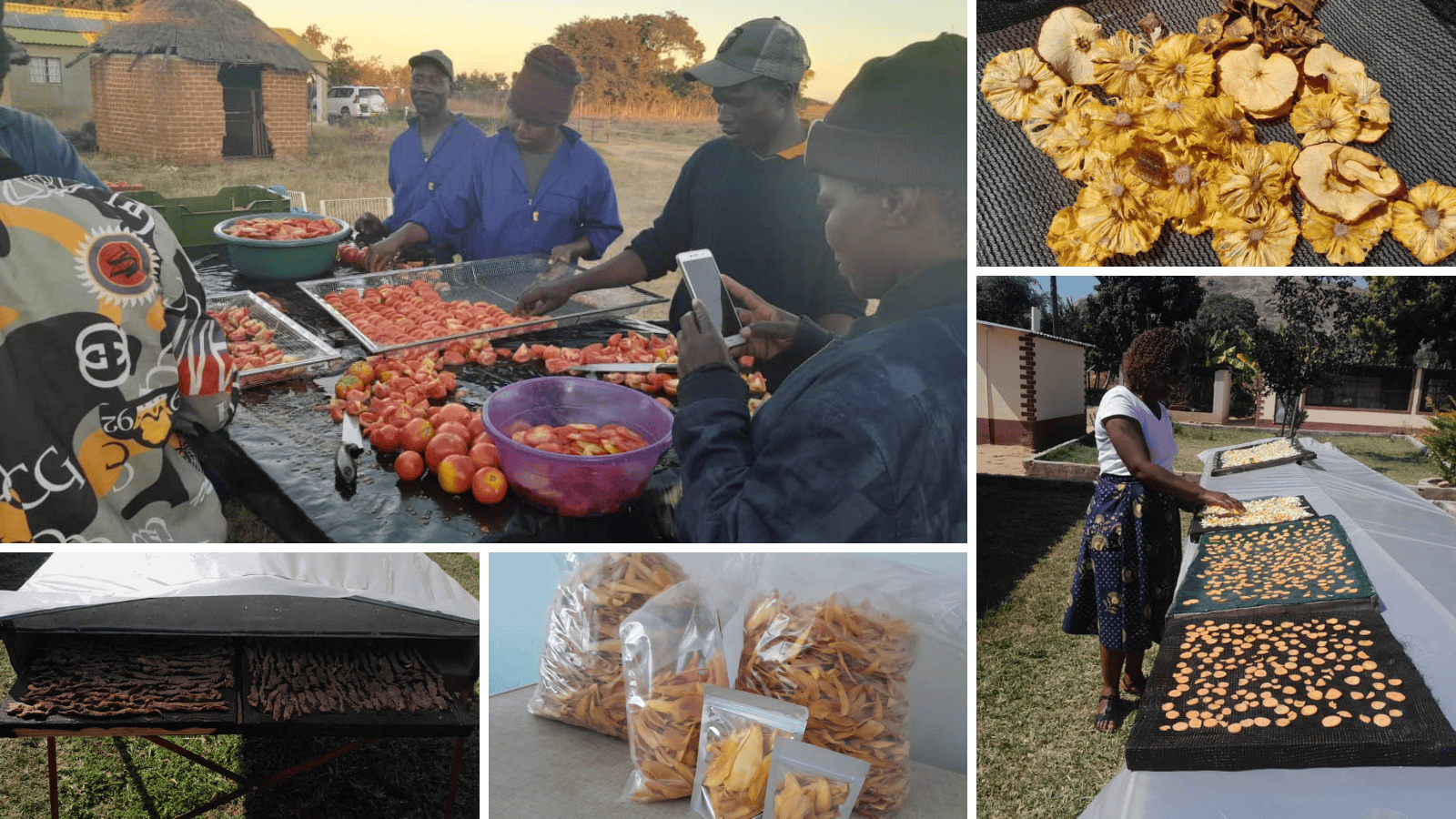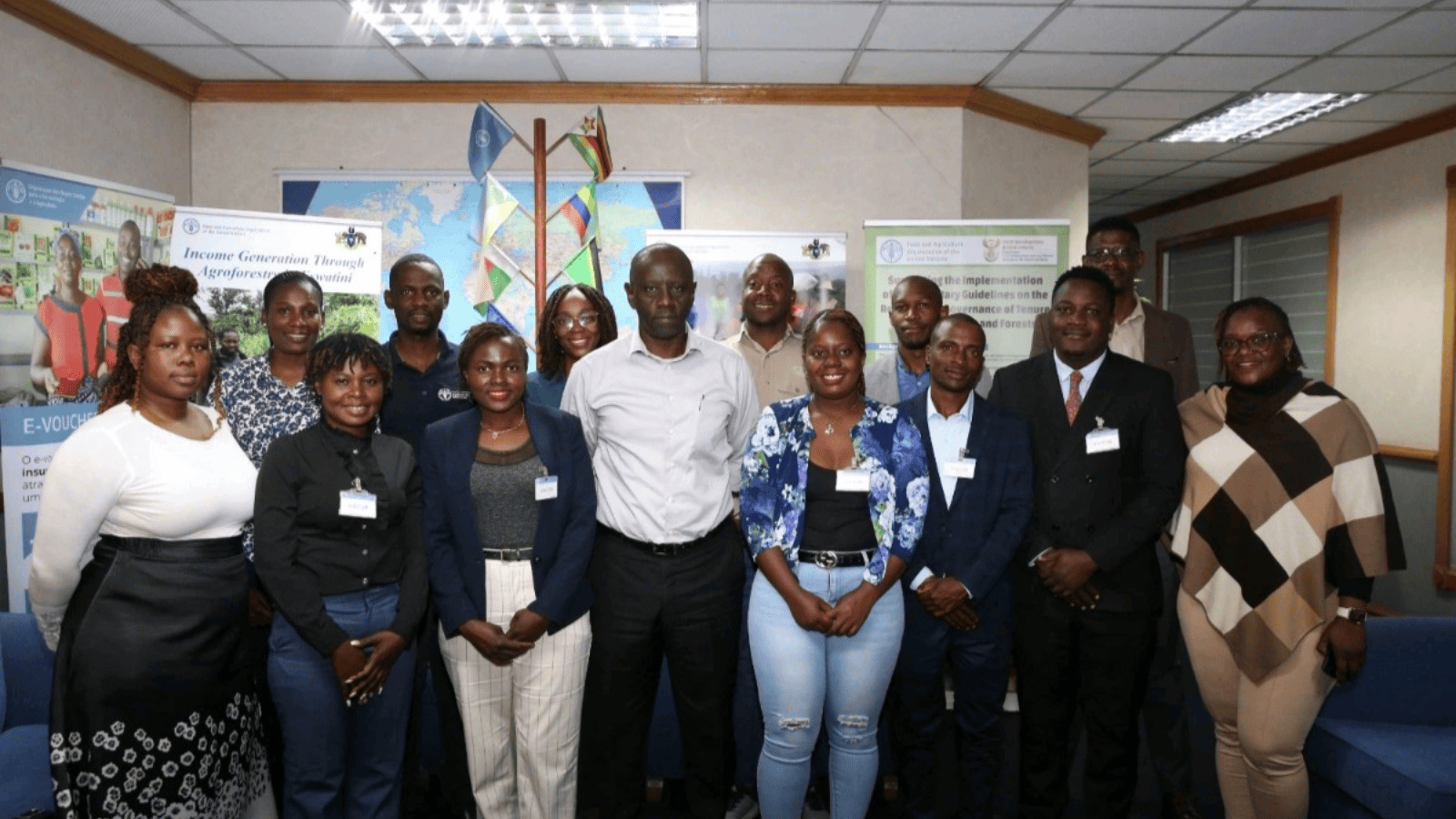Building opportunities from food waste: One youth advocate’s work in Zimbabwe
Youth Leadership Programme (YLP) alumnus Carlos Paul Nidza is empowering Zimbabwe’s youth to cut food waste and build new livelihoods.

In the rural outskirts of Harare, Carlos Paul Nidza is helping to run a new kind of agricultural training—one that transforms surplus fruit into new sources of income and gives young people practical ways to build better futures.
Carlos is focused on tackling two pressing challenges: youth unemployment and the large-scale food loss that threatens farmers’ livelihoods. "Over 30% of harvested crops in Zimbabwe are wasted before they reach consumers," he said. "It's not just food that's lost—it's income, opportunities, and stability for farmers and communities."
Training youth to build sustainable livelihoods
For Carlos, one solution lies in value addition—training young people to process and preserve local produce that might otherwise be discarded. As part of the Chatukuta Dried Foods initiative, he works with others to train youth and women to dry fruits like mangoes, oranges, and pawpaws using solar technology.
Held at a rural homestead, the workshops walk participants through every stage of production—from building low-cost solar dryers to grading, drying, packaging, and marketing their products. Using a hands-on, farmer field school approach, trainees experiment with their own designs before refining their skills alongside technical experts.
“It’s about making food systems work better for everyone,” Carlos said. “We’re giving young people a way to build practical skills and livelihoods that can grow with them.”
A lot of young people, he noted, shy away from traditional farming because of its high costs and labor demands. “Value addition is more attractive—it’s tangible, it's marketable, and it creates new income streams,” he said.
Carlos is planning a survey to track how participation in the workshops has affected incomes and employment over time.

Connecting grassroots action with national policy
Alongside his community work, Carlos serves as a Monitoring and Evaluation Specialist at Zimbabwe’s Ministry of Lands, Agriculture, Fisheries, Water and Rural Development, where he supports climate-smart agriculture initiatives and strengthens research to inform better policy and project design. His government work complements his grassroots efforts, giving him a broader view of how data, policy, and practice can come together to transform food systems.
Beyond technical training, Carlos places emphasis on making broader food systems concepts understandable. Using simple language and visual diagrams, he shows how farming, processing, marketing, and food waste are interconnected—helping farmers and youth see their roles within the bigger system.
Building skills through the Youth Leadership Programme
Carlos’s leadership journey took a major step forward through the UN Food Systems Coordination Hub’s Youth Leadership Programme (YLP) - supported by the German Federal Ministry for Economic Cooperation and Development. The training helped him strengthen his skills in advocacy, collaboration, and leadership—tools he now uses daily in both his national and community work.
Since then, Carlos has represented youth perspectives on major regional platforms. As a speaker at the CAADP Post Malabo Validation Workshop in Zambia and the Africa Day for Food and Nutrition Security in Harare, he has pushed for youth to be seen not just as future leaders, but as essential actors shaping food systems today.
Pushing for youth voices in food systems
Carlos also serves as Collaborations and Partnerships Lead for the World Food Forum Zimbabwe National Chapter, where he works with FAO and other partners to strengthen youth engagement nationally.
He acknowledges that progress isn’t always easy. While some efforts exist, Zimbabwe still needs a stronger, more coordinated national strategy to support youth involvement in food systems – making grassroots initiatives all the more vital. “It takes persistence and trust-building,” he said. “But every step forward helps open more doors.”
Through LinkedIn and other platforms, Carlos shares his work, celebrates youth achievements, and encourages more young people to get involved. His advice is simple: “Be real. Be consistent. Lift others up when you can.”

Carlos with the World Food Forum (WFF) Zimbabwe Chapter.
A future shaped by young innovators
Looking ahead, Carlos envisions a food system where youth drive innovation and sustainability—leveraging new technologies, promoting agroecological practices, and building stronger local economies. Support from initiatives like the YLP, he said, can help make that future possible by investing in youth-led solutions.
“We’re finding practical ways to cut waste, create jobs, and make agriculture work better for the next generation,” he said.
